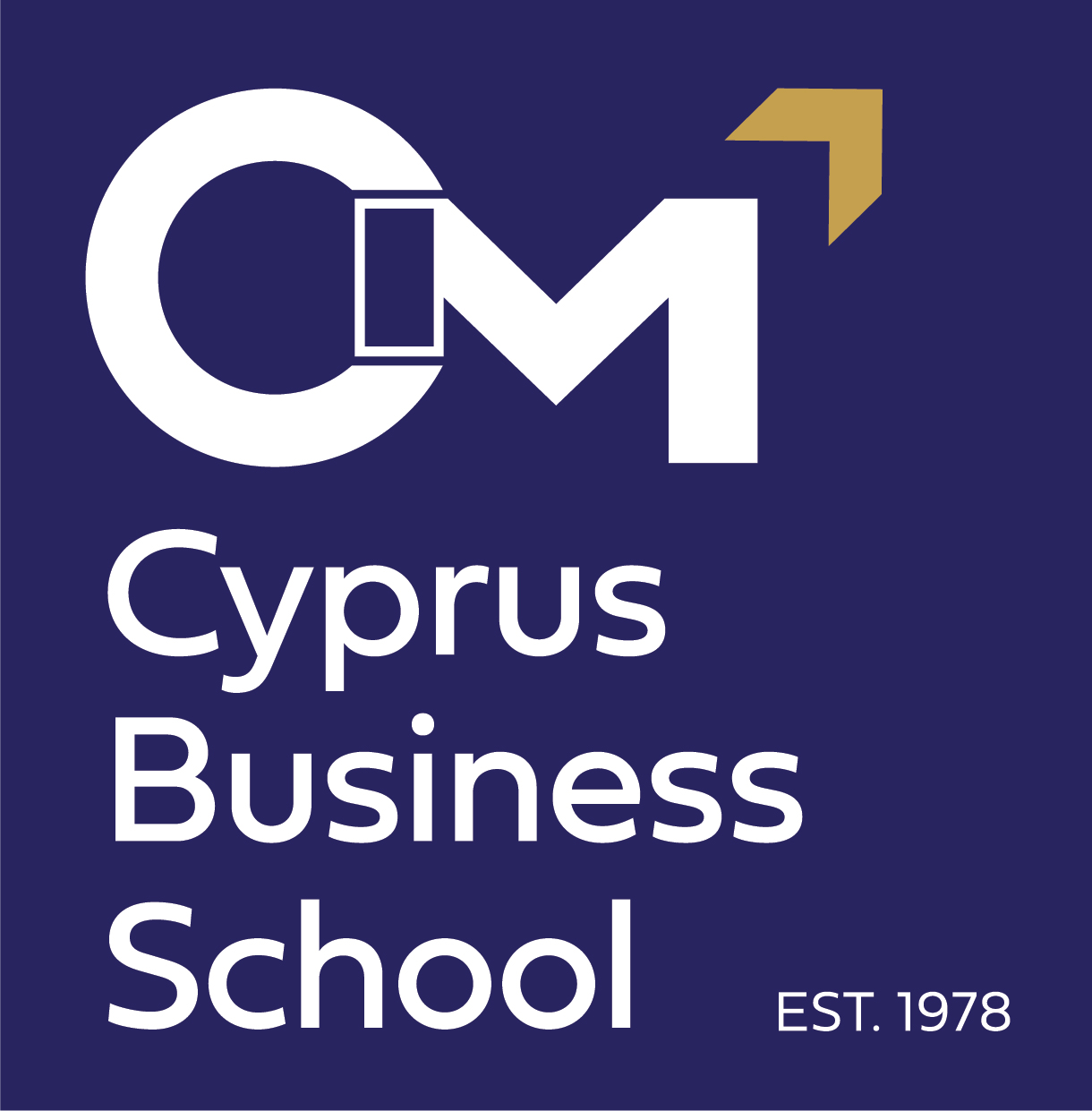Diploma
Marketing
Management
(2 Years)

Overview
Subjects
Assessment
Course Objectives
This programme is designed to assist students
in meeting the challenges of today’s market
place towards in the next decade. Students
will acquire the necessary industrial skills and
knowledge through a variety of business modules
that have been carefully selected to assist them
in effectively performing their duties as future
business managers.
This programme is mainly of a professional nature with a relative provision of scholarly resources in enhancing the development of future marketing managers. Upon completing this program and enhancing all their essential professional skills, students will be able to move forward to an academic Bachelor degree if they so wish.
This programme is mainly of a professional nature with a relative provision of scholarly resources in enhancing the development of future marketing managers. Upon completing this program and enhancing all their essential professional skills, students will be able to move forward to an academic Bachelor degree if they so wish.
Recognition
he Diploma offered both in Nicosia and Limassol
is Accredited by CYQAA and can be submitted
upon completion to KYSATS for recognition.
As such, Cypriot students are eligible to apply for
a government subsidy of up to €3420.
Commencement
October. All modules run on a yearly mode.
Aims
Our aim is to generate graduates who have
enhanced all of the industrial skills and abilities
needed for effectively carrying out their duties in
the business marketing world.
We hope you will leave us as:
A brilliant decision-maker, with the ability
to reach successful solutions in a business
situation;
A business professional who is able to put his/
her knowledge into practice under the pressure
of today’s business environment;
Someone who could make the most of
professional study;
A successful team leader who can effectively
perform his/her duties in collaboration with
others and independently;
Someone who doesn’t see a job as the end
of their studies, but as only the beginning of
continuous professional development and
lifelong learning.
We hope you will leave us as:
Year 1
1. Business Communication
2. Consumer Behaviour
3. Fundamentals of Management
4. Digital Marketing
5. Principles of Marketing
6. Practice of Sales Management
2. Consumer Behaviour
3. Fundamentals of Management
4. Digital Marketing
5. Principles of Marketing
6. Practice of Sales Management
Year 2
1. Marketing Management and Practice
2. Public Relations
3. Management Information Systems
4. Entrepreneurship and Small Businesses
5. Integrated Marketing Communications
6. Marketing Research
2. Public Relations
3. Management Information Systems
4. Entrepreneurship and Small Businesses
5. Integrated Marketing Communications
6. Marketing Research
Module Aims
Year 1
Business Communication is a basic language
and communication skills course, designed
specifi cally for students for whom English is their
second language. It aims to improve students’
written and verbal communication skills; develop
their oral presentation skills; introduce them to
business vocabulary and etiquette; and generally
give them the confi dence to conduct business
in English. It incorporates reading and listening
comprehension practice tests, reading texts for
understanding, and features exercises that have
students practise conversations and discussions in
English of various lengths and levels. The course
also teaches students the fundamentals about
business correspondence – letters, e-mails, and
social media.
The module offers an understanding of how
buyer behaviour helps marketers focus more
effectively on customers’ needs and wants. It
also addresses wider societal concerns about
consumption in a world of fi nite resources and the
potential confl icts that face today’s marketers as
they attempt to square consumer needs with a
fi rm’s need for profi ts and societal responsibilities.
The module enables students with an interest in
consumer behaviour to develop their knowledge,
understanding and skills in this area.
This course is an overview of the major functions
of management. The course examines the basic
managerial functions of planning, organizing,
staffi ng, leading and controlling in the
contemporary environment through a variety of
theories and models for an effective managerial
decision-making. Emphasis is on basic managerial
functions of planning, organizing, controlling and
leading through a variety of theories and models
for an effective managerial decision-making. Upon
completion, students should be able to work as
contributing members of a team utilizing these
functions of management.
The major aim of this course is to present students
the need of marketing to adapt to the changing
nature of customer paths in the digital economy.
Students will be exposed to the ways connectivity
has fundamentally changed human lives. Students
will learn how marketers can boost productivity by
understanding customer paths in the digital era by
being introduced to a new set of marketing metrics
and a whole new way of looking at marketing
practices. Contemporary ways of marketing
will be analysed to examine how marketing can
utilizes electronic mediums and technological
advancements such as smartphones, computers,
tablets etc. Examples of several key industries will
be used and students will learn how to implement
the new ideas of Marketing. Students will explore
content marketing customer engagement in greater
detail in order to create customer conversations.
They will be able to understand how use of online
platforms like websites, Facebook, Skype, Tweeter
etc. are becoming a central pillar for successful
marketing strategies.
This course provides students with a good
knowledge of the basic precepts of marketing
and, in particular, a sound grasp of the marketing
concepts and its applications. The course aims to
provide a managerial orientation of the subject, i.e.
the major decisions facing marketing executives
and top management as well as a foundation for
analysing markets and developing marketing plans
at more advanced modules in the programme.
The objective of this course is to develop skills
and abilities that allow students to manage your
sales territories and own business, and provide
them with a set of unique tools enable them to
develop and build successful sales and management
careers. More specifi cally students will gain
understanding of the sales process, the relationship
between sales and marketing, sales force structure,
customer relationship management (CRM), uses of
technology to improve sales force effectiveness, and
issues in recruiting, selecting, training, motivating,
compensating and retaining salespeople.
Year 2
Students will acquire skills in analyzing and
solving marketing problems. More specifi cally,
students will develop knowledge of appropriate
marketing strategies that effectively take into
account external environmental variables,
consumer behaviour, marketing research,
marketing accounting and fi nance, and strategic
marketing variables through the implementation
of case studies. They will also learn the
fundamentals of a marketing plan and the
role it plays in driving marketing management
effectiveness.
The course is an introduction to communication
policies of contemporary businesses and society.
The content of the course aims to introduce
students to the basic concepts and methods of
public relations in the business environment.
The purpose of this course is to provide
students with knowledge and skills required
to utilise information systems effectively in an
organisational context. The course introduces
students to the application and management
of information systems in an organisational
environment. In addition, this module aims to
introduce students to those concepts related
to computer-based communication including
email networks, internet, world wide web and
bibliographic instruction. Finally, the purpose
of this module is to enable students to consider
issues related to ethics, computer security and
privacy, and to practice basic Microsoft Offi ce
skills.
The course addresses the theories and techniques
applied to business development – new business
formation, business growth and sustainability.
Students learn about fi nance and small business
and development strategies designed to develop
business and businesses. The main aims of the
course are to familiarize students with various
concepts used in understanding processes
involved in entrepreneurship and business
formation and development. Introduce key
debates around entrepreneurship and small
businesses and provide evidence which informs
those debates.
The objective of the course is to help students
understand the principles and practices of
marketing communications, involving tools used
by marketers to inform consumers and to provide
a managerial framework for integrated marketing
communications planning. Topics covered
will include the role of integrated marketing
communications, organizing for advertising
and promotion, the communication process,
promotional objectives and budgets, creative
strategy, media planning and strategy, broadcast/
print & support media, direct marketing, sales
promotions, PR and publicity, Internet marketing
Social Media and Mobile Media Advertising.
Marketing research is concerned with the
systematic collection, analysis and interpretation
of data to help marketing managers make
better marketing decisions. In the last few years
the greater availability of data and computing
capacity, and the growing awareness of the
complexity of marketing decisions have made
marketing research a growing activity. Specifi cally,
the course aims to provide an awareness and
understanding of the major analytical tools of
marketing research, and to enable students to
learn to interpret research fi ndings and make
marketing decisions in the light of such fi ndings.
Students will need to submit a 6000 word
research report upon a real business problem.
Assessment
Students sit for examinations once a year, every May.
The weighting of results is as follows:
Assignments – 30%
Final exams – 70%
The pass mark is 40%
The weighting of results is as follows:
The pass mark is 40%
Share to:




